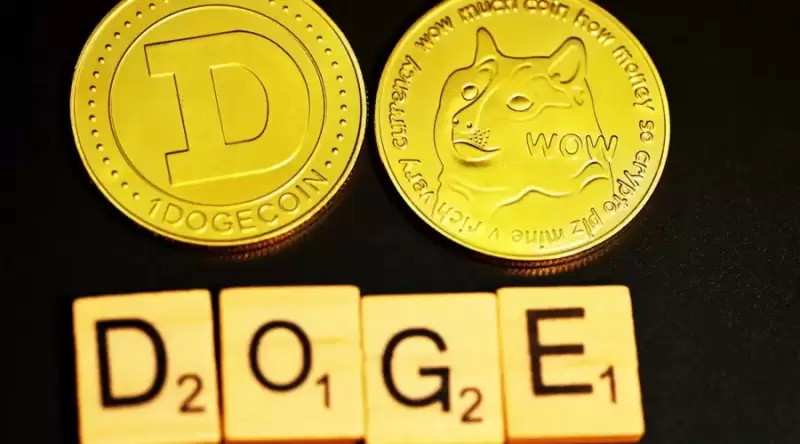 |
|
 |
|
 |
|
 |
|
 |
|
 |
|
 |
|
 |
|
 |
|
 |
|
 |
|
 |
|
 |
|
 |
|
 |
|
Cryptocurrency News Articles
Rare Roman gold coin discovered by metal detectorist in West Midlands field sells for £4.7k
Mar 29, 2025 at 06:00 pm
Ron Walters, 76, unearthed the nearly 2,000 year old coin on land he had been scouring for six years in Wall Heath, near Dudley, last May

A gold coin discovered by a metal detectorist in a farmer's field has fetched £4,700 at auction after it was revealed to be a rare Roman treasure.
The artefact, which is nearly 2,000 years old, was unearthed by 76-year-old retired welder Ron Walters last May in Wall Heath, near Dudley, West Mids., on land he had been searching for six years.
It is thought to be the first aureus of emperor Aulus Vitellius ever recorded as a find in England.
The coin was sent to the British Museum, which disclaimed it and returned it to Ron before it went under the hammer this week at Fieldings Auctioneers in Stourbridge. The coin sold for £4,700, the proceeds of which will now be split with the coin’s discoverer.
Ron said: “I thought it might go for a bit more but it’s been amazing to be part of a historic discovery and it’s certainly something to tell the grandkids.
“I’ll keep on searching for more treasures with my metal detector but they did tell me this was a once in a lifetime find, so I doubt I’ll find anything like this ever again.”
Great-grandfather-of-seven Ron, of Kingswinford, West Mids. , explained how he found the coin after his wife told him to “get out the house for a bit.”
He said: “I was going to go one Thursday and decided against it and it was my wife who basically told me bugger off and get out the house for a bit.
“And I was glad I did. I was out for a couple of hours and I picked a signal up. I started digging a bit but then I lost the signal.
“I managed to get this reading again from a clod of earth about 2ft away from me, I broke it open and then this coin dropped into my hand.
“My heart was racing, I just popped it in my pocket and went straight back home.
“In metal detecting circles a Roman coin is probably among the best things you can find.”
Mark Hannam, senior coin specialist and auctioneer at Fieldings, described the discovery as “a genuinely amazing find” and “a unique piece of history.”
He said: “I am very pleased with the result, as the condition of soil and stone action had taken its toll a little, with the coin being in the ground for over 1,900 years.
“There was lots of pre-sale interest and bidding was brisk, quickly reaching estimate level. The coin has now gone to its new home with a collector in Scotland and I am pleased that it has remained in the UK.
“To find a coin from AD69 is incredibly rare, as most coins we find in this country are from the third and fourth centuries, and we are talking about a time when the gold was at its purest level.”
Vitellius was a brief emperor during the tumultuous "Year of the Four Emperors." in 69 AD, after taking power post-Emperor Otho’s defeat in a civil war that battled over the imperial succession.
His reign was defined by a penchant for luxury, evident in the lavish banquets he threw and the extravagant lifestyle he led, both of which stood in stark contrast to the escalating instability within the empire. During his time in power, he focused on consolidating his rule and attempting to introduce some stability to the state after the turbulence of the previous year.
However, Vitellius made little attempt to restore the moral and administrative order of the state, leading to widespread disapproval among many Romans. Despite this, he was a skilled military commander and administrator, and he managed to quell the unrest that had been brewing in the provinces.
Ultimately, Vitellius' reign was cut short when he was overthrown by Emperor Vespasian, who had the support of the legions in the east. Vitellius was executed in December of 69 AD, bringing an end to his short but eventful rule.
Disclaimer:info@kdj.com
The information provided is not trading advice. kdj.com does not assume any responsibility for any investments made based on the information provided in this article. Cryptocurrencies are highly volatile and it is highly recommended that you invest with caution after thorough research!
If you believe that the content used on this website infringes your copyright, please contact us immediately (info@kdj.com) and we will delete it promptly.



























































